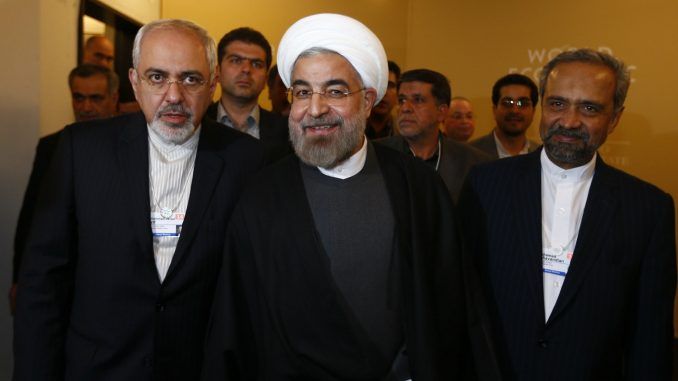
After Iranian President Hassan Rouhani posted the sad news about his mother’s death on his official twitter account, hundreds of people tweeted their condolences. U.S. Secretary of State John Kerry was among them.
Top Iranian officials are relying more on social media to express themselves to the world, bypassing traditional channels hampered by prejudice and entrenched political rivalry.
SHOWING PERSONALITY

BYPASS THE CENSORS
Sign up to get unfiltered news delivered straight to your inbox.
You can unsubscribe any time. By subscribing you agree to our Terms of Use
Rouhani’s official account, though mostly about his daily activities, features some personal touch, showcasing a caring and humane president.
The tweet about Rouhani’s mother had a photo of him sitting by the side of his ailing parent under the words “The death of a mother is the first sorrow wept without her.”
The death of a mother is the first sorrow wept without her. pic.twitter.com/VK3SbpDUgZ
— Hassan Rouhani (@HassanRouhani) March 20, 2015
On the same day, Rouhani also tweeted to say Happy Nowruz, Iranian New Year and beginning of spring, to Iranians, wishing the new year “be filled with peace and prosperity for all.”
On Sunday, he wrote about a visit to an elderly nursing home with a photo of him giving a bouquet of rose to an old lady.
Iranian Supreme Leader Ali Khamenei’s twitter shows even stronger personality, presenting to the world a poetic, philosophical grandfather who cares deeply about the future of Iran.
One of Khamenei’s recent tweets said “For some of you, I am old enough to be your grandfather and I have an optimistic outlook on the future.”
And on the occasion of Nowruz, Khamenei tweeted “O Conqueror of hearts & sight, O Planner of night & day, O Transformer of power and circumstances, Change our condition to the best of conditions.”
Fierce criticism on the United States is another theme of Khamenei’s tweets. “US sanctions are ineffective. Threatening to sanction or military action won’t scare Iranians. God backs Iranian nation’s resistance,” he tweeted Sunday.
DELIVERING MESSEGE ON TALKS
The twitter account of Mohammad-Javad Zarif’s, Iranian Foreign Minister and leader of nuclear talks team, looks quite strictly work-related, more precisely, nuclear talks related.
Zarif tweeted “Iran’s Message: We Can Make History” with link to a youtube video about Iran’s position on nuclear talks, in English, French, Russian, Chinese, German and Arabic so that people from the P5+1 group, namely, the United States, Britain, France, Russia, China and Germany as well as Iran’s Arabic neighbors can see the message.
“Iranians have already made their choice: Engage with dignity. It’s high time for the US and its allies to chose: pressure or agreement.” Zarif wrote on his last tweet posted Friday when his talks with Kerry ended.
Nuclear talks are a universal topic on twitters of Iranian top officials. They use twitter to deliver news and clarify their positions on the talks, offering a peep into developments of the closed-door negotiations.
Rouhani on Saturday announced the upcoming resumption of talks on twitter, “Iran talks to resume in few days; final steps are always hardest in negotiations as both sides have to compromise to reach a win-win outcome.”
Khamenei also called for talks to be strictly on the nuclear issue on twitter late Saturday. In the tweet he said talks with the United States are only on the nuclear issue and nothing else, especially not involving regional issues, where Iran and the United States have opposite goals.
In another tweet, Khamenei rejected the US offer of reaching a deal before lifting sanctions as fraudulent, stressing “lifting sanctions is a part of deal not its outcome.”
“I say it clearly that there’s no one in Iran who wouldn’t favor a solution to the nuclear issue; but Iranians don’t accept U.S. bullying,” Khamenei tweeted.
Iran is gravely concerned with profanity, obscenity and security challenges of the Internet, and social media along with it. The country filters internet contents and bans some social networking websites and apps including twitter, facebook and youtube.
However, social media are still popular among Iranians, especially young urban residents as proxy service to bypass internet screening, though unstable, is widely available in computer and cellphone shops.
Edmondo Burr
CEO
Assistant Editor
Latest posts by Edmondo Burr (see all)
- Police Arrest Suspect In Supermarket Baby Food Poisoning - October 1, 2017
- Seoul Secures Data From Electromagnetic Interference By N Korea - September 30, 2017
- The ‘World’s First Internet War’ Has Begun: Julian Assange - September 30, 2017

